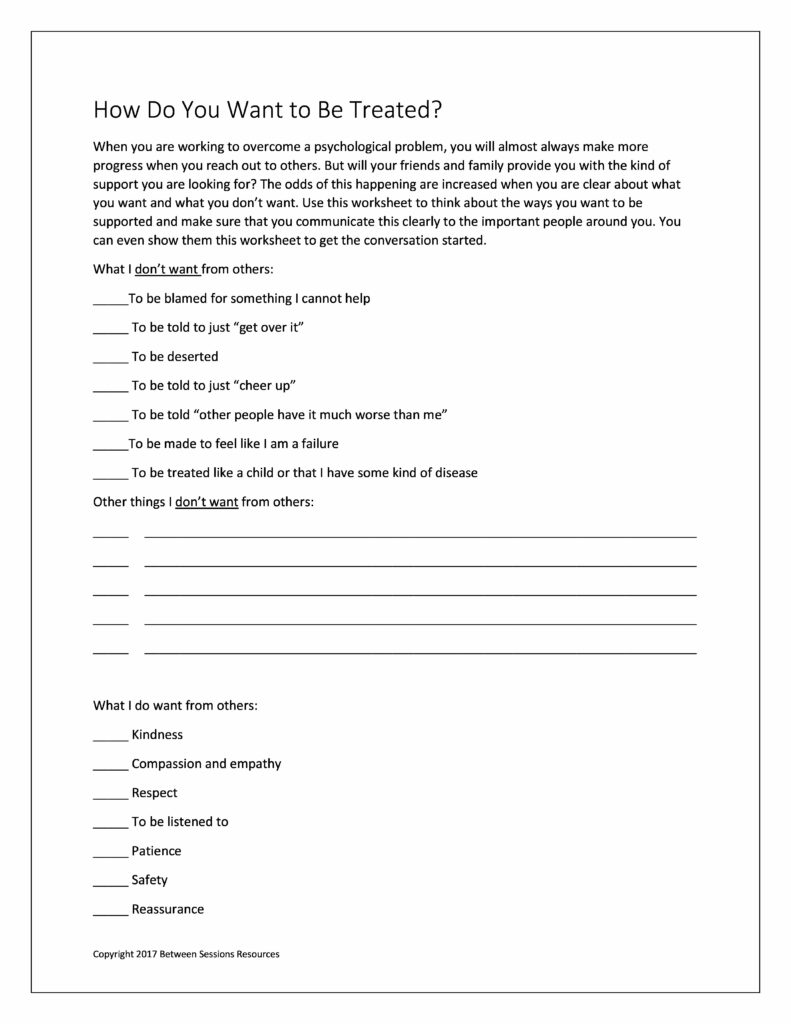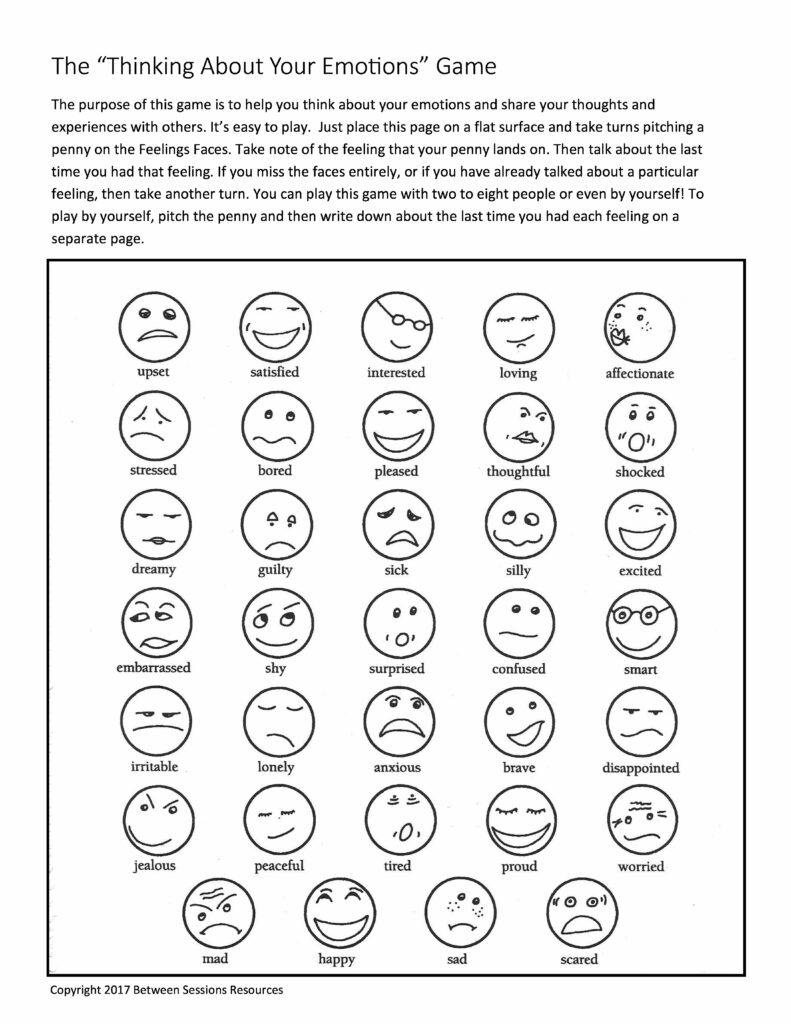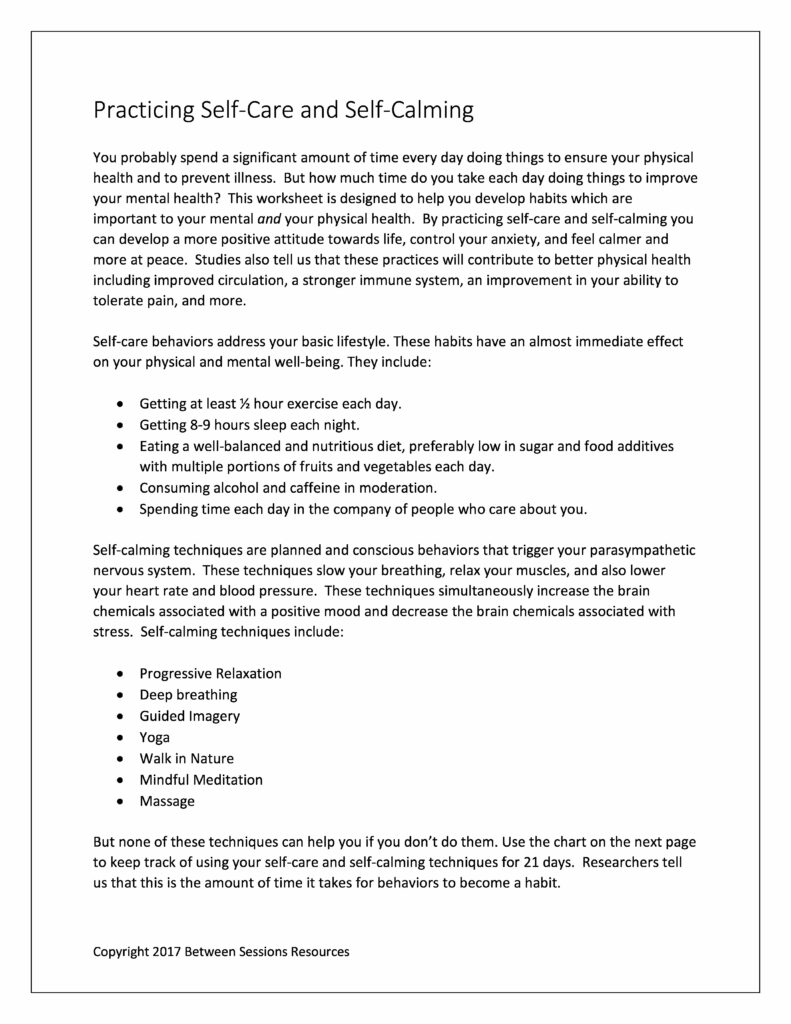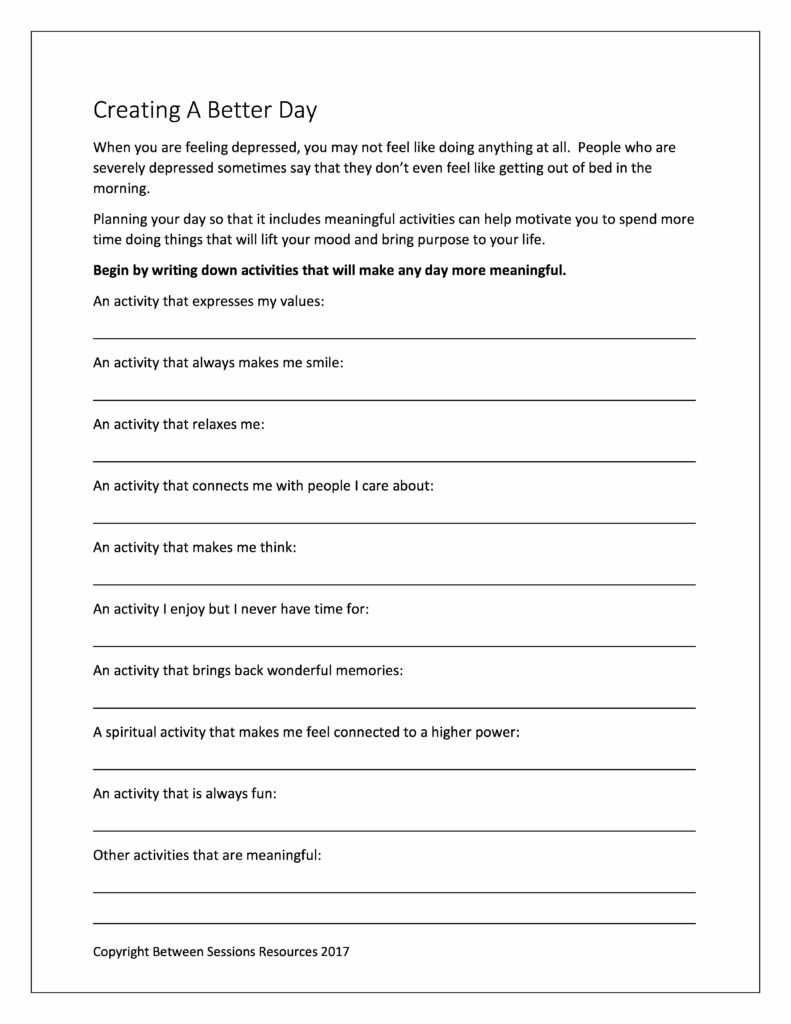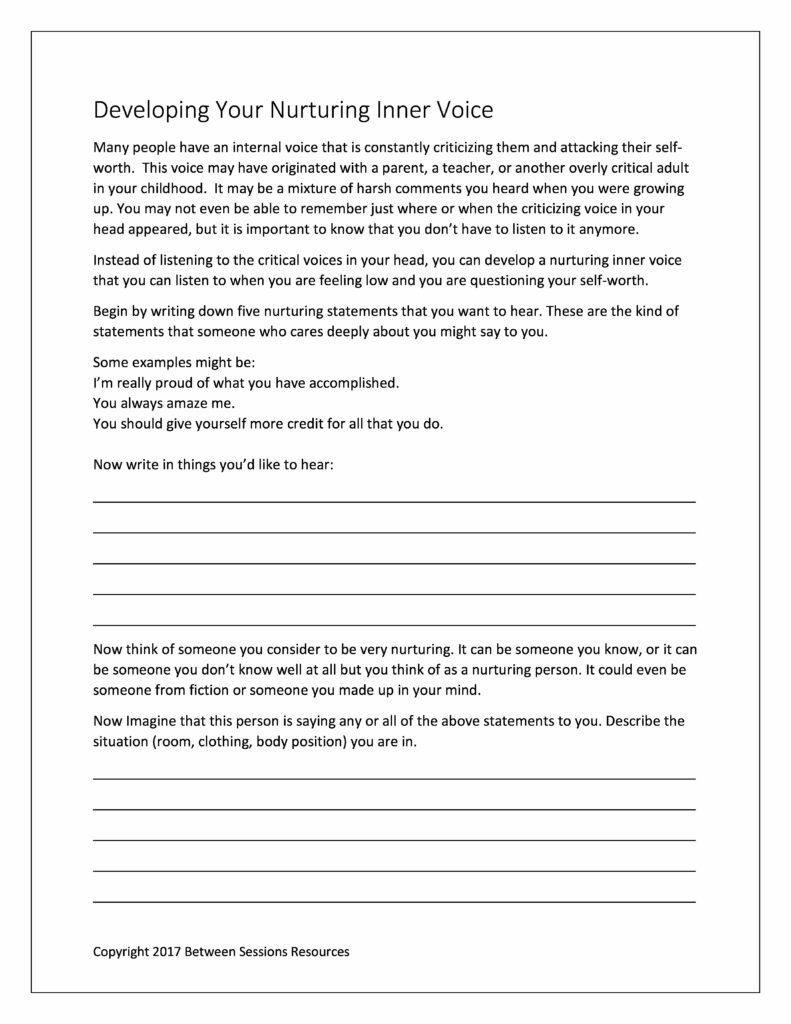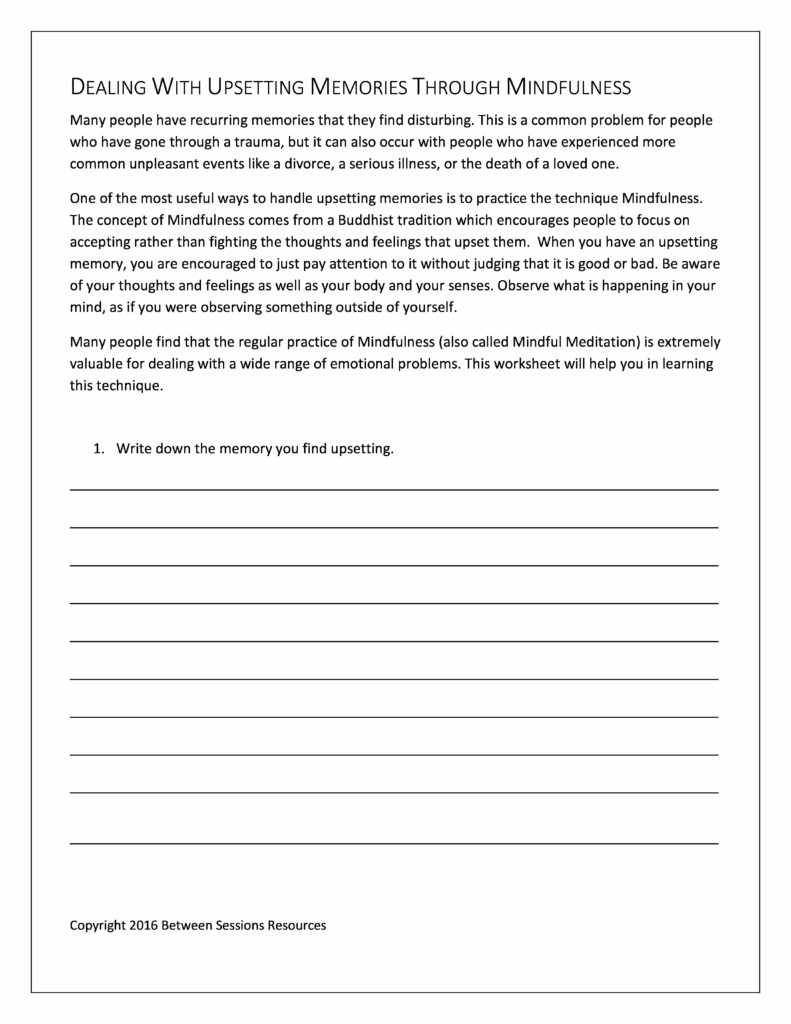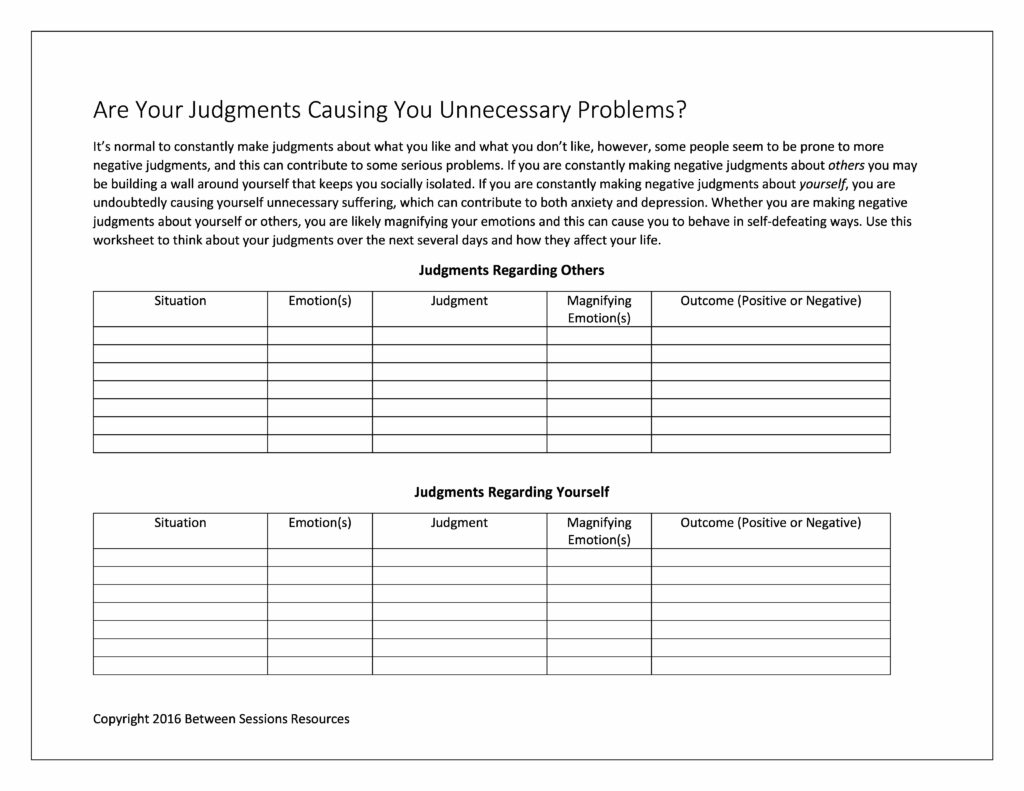This worksheet is designed to help people identify the triggers that are associated with upsetting emotions like anxiety or depression. (0717)
This worksheet asks people to consider how they can motivate themselves to change in therapy. The worksheet presents 10 different ways to change and asks people to rate them and pick three ideas which would be most helpful. (therapy homework, motivation, 0617)
This worksheet helps people learn to treat themselves with more compassion, much like they would treat a loved one in need. (depression, self-care, 0517)
This worksheet is designed to help people think about how others can help them with their psychological problems. The worksheet asks them to think about both the things that they want from others as well as the things they don’t want. (depression, social skills, communication, 0417)
This worksheet is designed to help people think and talk about their feelings. Players pitch a penny on the worksheet and then talk about the feeling where the penny lands. The game can be played in a small group or even by an individual. (emotional intelligence, depression, communication, social skills, 0317)
This worksheet is designed to encourage people to practice both self-care and self-calming techniques on a daily basis. The worksheet lists types of techniques are effective in each category and includes a form to record the use of these techniques for 21 days (the time it takes to form a habit). (PTSD, depression, anxiety, eating disorders, 0217)
This worksheet is designed to help depressed people become more active by identifying and scheduling various meaningful activities they enjoy doing. (depression, CBT, wellness, 0217)
This worksheet is designed to help people replace a critical inner voice with a more nurturing one. It asks the user to imagine a caring person in his or her life and internalize what this person is saying along with the feelings these statements engender. (PTSD, depression, CBT, 0117)
Many people have recurring memories that they find disturbing. This is a common problem for people who have gone through a trauma, but it can also occur with people who have experienced more common unpleasant events like a divorce, a serious illness, or the death of a loved one. One of the most useful ways to handle upsetting memories is to practice the technique Mindfulness. This worksheet will help people learn and practice this technique. (PTSD, DBT, divorce, mindfulness, trauma, 1116)
This worksheet is designed to help people think about their negative judgements and how these affect their moods and behavior. The worksheet asks individuals to think about how they judge others as well as themselves.




